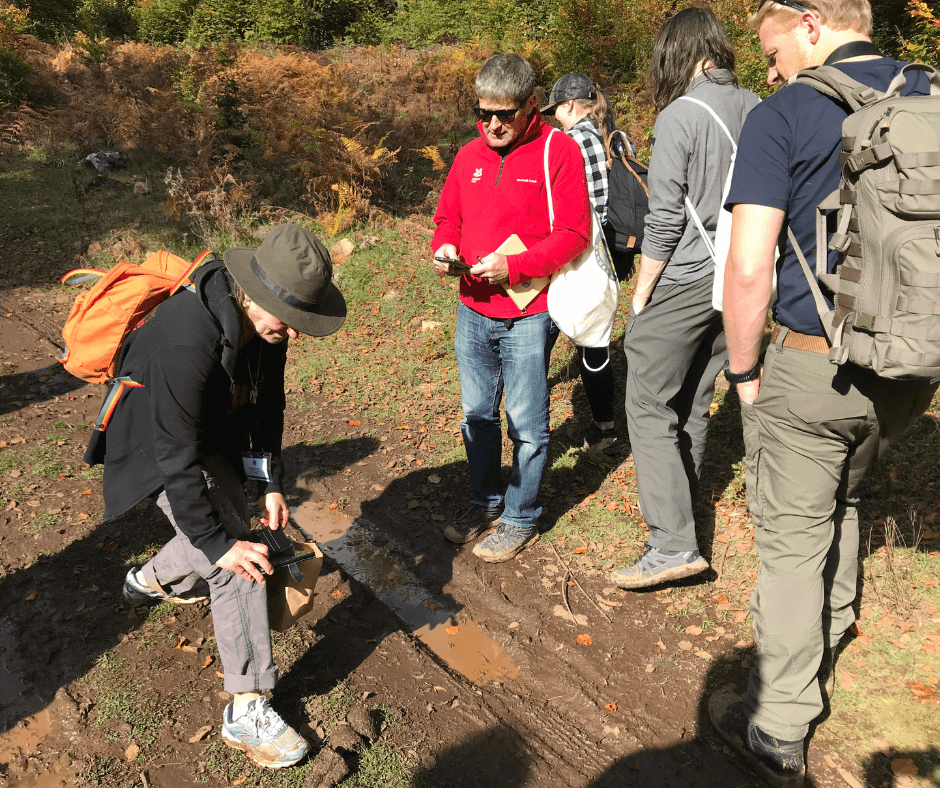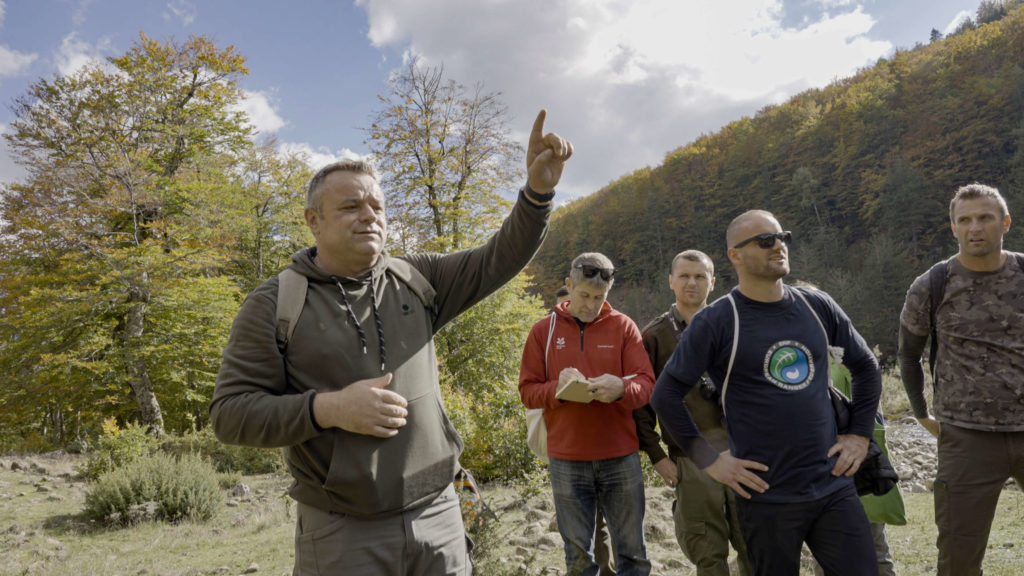On the road with rangers from Europe and all over the world in the mountains of the Shebenik-Jablanica National Park in Albania. Time to talk: about what it means to be outdoors every day and sometimes at night, working to protect nature. On the excursion day of the European Ranger Congress, rangers from Europe and beyond tell us what makes them proud, what rangering means to them, what challenges are involved, but above all: why it is the best job in the world for them.
We march uphill on a muddy track. The fresh mountain air, views of the autumn-coloured mountain forests with its rocks and the conversations are great after a congress kick-off with intense discussions and numerous presentations. We are accompanied by Albanian rangers, including Fatmir Brazhda, director of the Elbasan protected area region where we are hiking, and Xhek Nezha, monitoring chief of the regional protected area administration.
“One of our main tasks here is to prevent illegal logging,” the two report. “90 percent of the population around this national park use wood for heating,” says Brazhda. Especially now, when energy prices are going off the charts, he and his colleagues are heavily working, even in night patrols. “We are out in pairs to protect ourselves from animals or even attacks by people we catch stealing wood.”
Every October, local residents are allowed to collect firewood in the national park free of charge
Brazhda and his colleagues understand the needs of the population in a region where the forests are no longer available to them for firewood or forestry work as source of income since the establishment of the national park in 2008. And so Brazhda reports with a smile about a compromise: “Every year in October, we have a project: For one month, the local residents are allowed to collect wood in the forests free of charge, which accumulates during forest management. We control the exports until November when no one is allowed in to collect wood.”
The ranger stops at a mountain river. He has to speak loudly so that his colleagues from all corners of Europe and the world can hear him above the rush of water. “In 2017, these primeval beech forests on around 2,300 hectares of the national park were declared a UNESCO Natural Heritage Site,” he explains, pointing to the colourful forests.
Protecting nature without excluding people: A challenge for all rangers
Protecting Europe’s natural treasures while involving the people: This is the balancing act Albania’s rangers are facing just like the vast majority of the congress participants. But how do the rangers themselves see it? What is it about being a ranger? Borja Díaz, a ranger from the Spanish Basque Country, offers a quick answer: “For me, being a ranger means being paid to live a dream.”
Of course, his work does not run without conflict either: just a few days after the congress, he and his colleagues back home were working day and night to put out forest fires. But here, among so many people who are out in the protected areas every day for their conservation, education for sustainable development, combating poaching or timber theft, visitor and catastrophe management along with many other tasks, pride and happiness outweigh the many conflicts of the ranger profession. “For me, it is an honour to be able to work for the protection of nature like this here – a dream came true,” a Croatian ranger puts it.

Congress content accelerates knowledge transfer and helps rangers out in the field
This nature is also about preserving habitats that enable biodiversity. The impressive traces of a larger representative are enthusiastically captured by the camera lenses: a pile of bear droppings lies in the middle of the muddy path, not far from a few houses with cows in front. In the rarest of cases, conflicts between wildlife and rangers as their protectors and livestock keepers can be settled with spirits, as we are served by Albanian rangers at the end of the excursion.
But ideas for improved monitoring of large carnivores and other wildlife species, involvement of the population through junior rangers and community projects and, above all, stronger cooperation between rangers for more knowledge transfer and support were plentiful on the other days of the congress. We hope that many of them will be implemented and help the Albanian rangers as well as their European colleagues in their challenges out in the field.
This content is sponsored by


